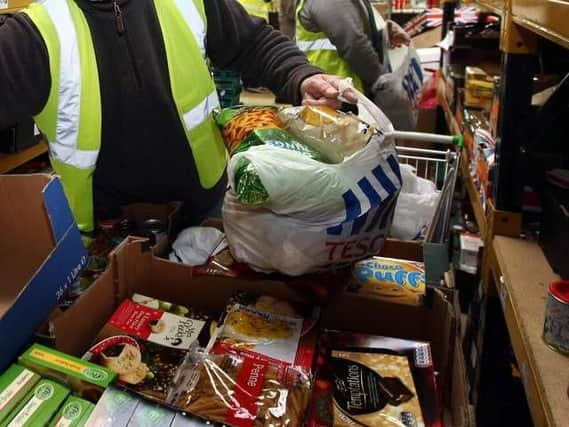Foodbank handouts for people in poverty in Yorkshire shoot up over a quarter in a year


Some 200,562 emergency food parcels were provided to people facing hardship in Yorkshire and the Humber by the Trussell Trust between April 2022 and March 2023, with 75,142 of these parcels provided for children.
This is the most parcels food banks in the Trussell Trust network in Yorkshire and the Humber have ever distributed in a single year and represents a 28 per cent increase compared to last year.
Advertisement
Hide AdAdvertisement
Hide AdThe Trust runs foodbanks across the region including Leeds, York and Hull.
Across the UK more than 760,000 people accessed a food bank in the Trussell Trust network for the first time – this is more than the population of Sheffield and a 38 per cent increase in people who have never needed support before, compared to the same period last year.
Emma Revie, chief executive at the Trussell Trust, said: “These new statistics are extremely concerning and show that an increasing number of people in Yorkshire and the Humber are being left with no option but to turn to charitable, volunteer-run organisations to get by and this is not right.
“The continued increase in parcel numbers over the last five years indicates that it is ongoing low levels of income and a social security system that isn’t fit for purpose that are forcing more people to access food banks, rather than just the recent cost of living crisis or the COVID-19 pandemic.
Advertisement
Hide AdAdvertisement
Hide Ad“Food banks were set up to provide short-term support to people in an emergency, they are not a lasting solution to hunger and poverty, and more than three quarters of the UK population agree with us that they should not need to exist. “
The Trust has now joined with the York based Joseph Rowntree Foundation urging the UK government to embed in law an ‘Essentials Guarantee’ that would make sure Universal Credit payments always, at a minimum, provide enough to cover cost of essentials such as food, utilities and vital household good - at least £120 a week.
But a spokesperson for the Department for Work and Pensions (DWP) defended its poverty record.
They said: “We are committed to eradicating poverty and we recognise the pressures of the rising cost of living which is why we have uprated benefits by 10.1 per cent as well as making an unprecedented increase to the National Living Wage this month.
Advertisement
Hide AdAdvertisement
Hide Ad“This is on top of changes already made to Universal Credit which mean claimants can keep more of their hard-earned money – a boost worth £1,000 a year on average.
“We are also providing record levels of direct financial support for the most vulnerable – £1,200 last year and a further £1,350 in 2023/24, with over eight million families starting to receive their first £301 Cost of Living instalment from yesterday – while the Household Support Fund is helping people with essential costs.”
Labour’s shadow work and pensions secretary Jonathan Ashworth said the “devastating” increase in emergency food parcels is the “price families are paying for 13 years of Tory economic failure”.